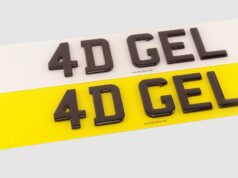
Buying a car is a big decision. For most Americans, it’s the second-most expensive purchase they ever make. So doing your due diligence before you buy is crucial. That means not relying on a visual inspection or even a test drive. To lower the risk of getting a bad car, you must get a vehicle history report.
What is a vehicle history report?

A vehicle history report gives you an overview of a car’s history. It can give you peace of mind before acquiring a vehicle.
According to Tiger Oakley at used car dealership Oak Motors, “vehicle history reports are a standard element of any car sale. We always inspect a car’s vehicle history report before adding the car to our inventory. This helps ensure we don’t pass a bad car on to our customers.”
That said, a vehicle history report won’t tell you everything about a car or its current condition. But it can tell you a lot.
What’s in a vehicle history report?
A vehicle history report includes all of the following:
Title history. This tells you the status of the car’s title. For example, a salvaged title means the car was deemed totaled at some point, and it may have major issues as a result. The title history will also tell you how often the car has moved between states and whether it has any outstanding liens or tickets.
Owner history. This tells you how many different owners the vehicle has had, how long each owner had the vehicle, and how it was used. For example, it may have been a rental car at one point in its lifetime.
Accident history. This tells you about all major accidents the vehicle was involved in, when the accidents happened, whether they were reported to authorities, and what damage was done.
Non-accident damage history. This tells you about any non-accident damage, e.g. from natural disasters like fires or floods.
Service history. This tells you the history of any services performed on the vehicle: oil changes, fluid checks, and part replacements. Compare this with the maintenance schedule recommended by the manufacturer. Then you’ll know how well the car was maintained.
Inspection history. This tells you the last time the vehicle was professionally inspected and the results of those inspections.
Mileage. This tells you how many miles are on the car. If the mileage doesn’t match up with the odometer, the odometer may have been tampered with, which is a red flag.
Recall information. This tells you about any past recalls on the car. These happen if a manufacturer determines there is a safety issue with the car. You can also check online to see if there are any current recalls on your car.
How to get a vehicle history report
Typically, when buying a car, the seller will offer a vehicle history report upfront. But if not, make sure to ask for one.
You can also request a vehicle history report from companies like Carfax and Autocheck. Other options include the Department of Transportation, your car insurance company, and some credit unions. In any case, you will need to provide your car’s vehicle identification number (VIN).
The Importance of Vehicle History Reports in the Used Car Market
In the used car market, vehicle history reports serve as indispensable tools for both buyers and sellers. They enhance transparency and trust by providing a comprehensive record of a car’s past. These reports help potential buyers make informed choices, minimize the risk of purchasing problematic vehicles, and instill confidence in sellers who can demonstrate the integrity of their offerings. Ultimately, vehicle history reports are vital for a smoother, safer used car transaction.
Unveiling Hidden Risks: What Vehicle History Reports Don’t Always Reveal
While vehicle history reports provide valuable insights into a car’s past, they aren’t infallible. Hidden risks may remain undisclosed, such as unreported accidents, repairs performed outside of professional shops, or unrecorded title issues. It’s vital for buyers to understand the limitations of these reports and complement them with a thorough inspection by a trusted mechanic. Being aware of what vehicle history reports don’t always reveal empowers consumers to make more informed decisions when purchasing a used vehicle.
Beyond Buying: Other Scenarios Where Vehicle History Reports Come in Handy

Vehicle history reports offer value beyond the initial purchase. They are beneficial when seeking insurance quotes, selling a vehicle, or diagnosing recurring car issues. Insurance companies may use these reports to assess risk and determine premium rates. When selling a vehicle, providing a history report can boost buyer confidence. Additionally, examining a report can help pinpoint potential past issues contributing to ongoing vehicle problems, aiding in more effective repairs.
DIY Vehicle History Reports: Tips for Consumers
Consumers can independently obtain vehicle history reports, offering control and peace of mind. Start by choosing reputable providers like Carfax or AutoCheck, or consider options such as VIN decoders, the Department of Transportation, your insurance company, or credit unions. To access the report, provide the vehicle identification number (VIN). Scrutinize the report for any red flags, inconsistencies, or discrepancies. This proactive approach ensures that consumers have a comprehensive understanding of a used vehicle’s background before making an informed purchasing decision.
Staying Informed: Keeping Up with Recalls and Ongoing Vehicle Safety
Staying informed about recalls and ongoing vehicle safety is paramount. Vehicle history reports include recall information, highlighting any manufacturer-issued safety concerns. To maintain vehicle safety, regularly check for recalls on the manufacturer’s website or use online tools. Stay vigilant, as recalls can emerge long after a vehicle’s purchase. Addressing recalls promptly ensures your vehicle remains safe and up-to-date with essential fixes, promoting both your safety and the longevity of your vehicle.
Getting a vehicle history report is a must before purchasing a car, but it’s also a good idea when you are trying to get a better insurance quote, selling your vehicle, or if your car is experiencing serious issues and you suspect it may be due to something that happened to it in the past. Whatever the case may be, a vehicle inspection report is a valuable piece of information.













